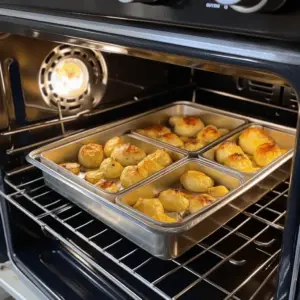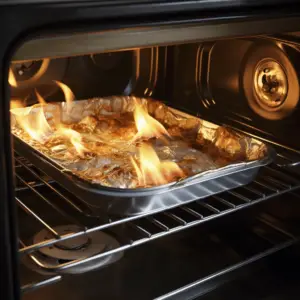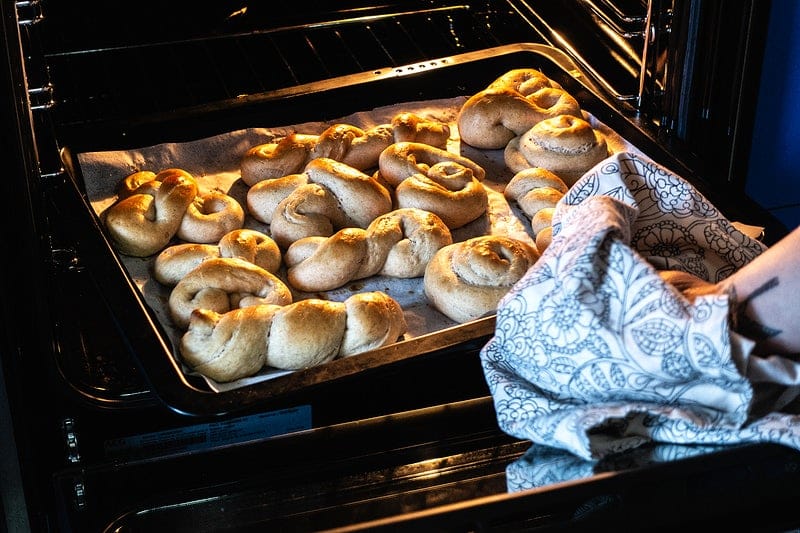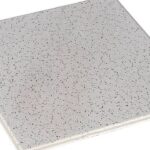Aluminum pans in ovens, When it comes to warming or baking food in the oven, the issue of the suitable type of pan or tray is essential. Therefore, it is advisable to conduct profound research before taking any risks.
Table of Contents
So, Can Aluminum Pans Go In The Oven?

Yes, they can go in the range when baking and warming food. Most times now, they have been versatile and used in the kitchen. But although some of the usages are essential, you cannot use aluminum for all cooking applications.
However, they can alter the food taste on the pan when put in the oven.
This piece answers many questions about using aluminum pans and tips to keep you safe.
Are Aluminum Pans Oven Safe?
Aluminum acts as a good conductor. Thus, it spreads heat uniformly while improving food cooking in the oven. Its melting point is 660.32 degrees Celsius, while most ovens range from 230-269 degrees Celsius as their average cooking temperature. Therefore, it is safe to cook in aluminum pans.
There are no known long-term health effects of consuming aluminum. Instead, food cooked in aluminum pans is considered safe by the CDC.
Regardless, it is safe to cook with Aluminum pans in the oven. The oven temperature is not high and doesn’t ruin the range or those around it. Although the oven type determines safety, each has a varying level of electromagnetic field intensity.
Can Aluminum Leach Into Food?
However, depending on the type of food you’re cooking, aluminum pans can be disastrous in the kitchen because food sticks to them, leaving them with a pitted surface. Acidic foods like vinegar, tomatoes, and citrus juice can cause the pan to leach into food, tainting its appearance and altering the flavor.
Simmering tomato sauce in an aluminum pan leaches the pan because it is acidic and salty; hence the salt causes corrosion and liquidy. The long time spent cooking increases aluminum leaching, which is likely to leak into acidic food.
To minimize further exposure, while cooking with the aluminum pans, use them for food that is mild in acidity, like soups, or adheres to the heating instructions given by the manufacturer.
Only a minimal amount of it is likely to end up in your body from food, drink, or use of the pans. Furthermore, it is not harmful, with science expert reports backing this information, saying aluminum cookware poses no health risks.
Do High Temperatures Affect Aluminum Absorbed into Food?
A lot of aluminum intake comes from food consumption. Hence it is paramount to be cautious about how you prepare and store your meals. Cooking at high temperatures and heat can cause aluminum to leach into food using aluminum cookware.
Typically, the amount of aluminum in your food while cooking is determined by the temperatures, type of food, and certain Ingredients like salt.
How Can You Avoid Aluminum Exposure To Food?
Aluminum is present in several other kitchen products like foil, water bottles, drink pouches, canned foods, and tin storage dishes. According to research, its transfer into food is more so when heated or placed in a container while hot.
Tips To Avoid Aluminum Leaching Into Food in Your Kitchen
- Avoid high-heat cooking but rather cook your food at a lower temperature.
- Avoid cooking acidic foods such as meat, lemon juice, rhubarb, and tomato sauce.
- Safe food in Non-toxic containers
What Happens When You Put Aluminum In the Oven?
Aluminum pans sustain arcs when put in ovens. These are sparks that may burn the pan. However, they might ignite a fire if they sparkle for a long time.
Aluminum pans in ovens the oven attains high temperatures, the beneath of the pan might melt. Flames might react with reactive metals.
Aluminum being a good heat conductor, heat spreads to its surface to warm up the heating elements. Finally, it interferes with the flame and damages the components ultimately.
Once it conducts heat, it may scrape the enamel surfaces of the inner parts of the oven. The elements assist in withstanding heat which may lead to the loss of protective coating in the range.
How to Tell If a Pan Is Oven Safe
The oven-safe pans contain an oven-safe symbol or a text in their manuals. The manuals will mention the material of the pan. It is oven safe if the pan material is cast iron, aluminum, copper, stainless steel, or ceramic.
Even though the oven isn’t oven-safe, it can be safe in the range if it is a non-stick or even-safe coating.
Can Aluminum Pan Be Put In A Convection Oven?

Inside the convection ovens, hot air circulates and distributes with the help of one fan to speed up the cooking process of food. In addition, it allows heat inside the oven for long-duration resulting in even cooking.
Yes, aluminum pans are put in a convection oven because they have low-carbon steel, which allows uniform hot air circulation and prevents Aluminum pans in ovens from catching fire. They are smeared with other non-reactive metals like stainless stains, which are safe for close to all ovens
Here is a list of different types of pans that are put in a convection oven:
- Baking pans
- Roasting pans
- Broiling pans
What Is The Safest Cookware Material?
Stainless steel is the top-rated safest cookware material and most durable. It holds heat well, making it incredible for meals that need slow but steady cooking procedures. It retains heat excellently.
The only shorting it has is that it discolors, imparting a messy taste to your food if exposed for too long.
The aluminum pans are the best cookware for cooking food in the oven. They come in various shapes and sizes depending on the range’s functions like roasting, broiling, and baking food. There are alternatives, but ensure you follow the safety measures and avoid cooking acidic foods or high temperatures using aluminum pans.
Aluminum pans are safe in the oven, though not entirely secure in particular ranges. For instance, when the pan is too thin, it can spark, causing vital damage to the stove; hence, handle it cautiously.


